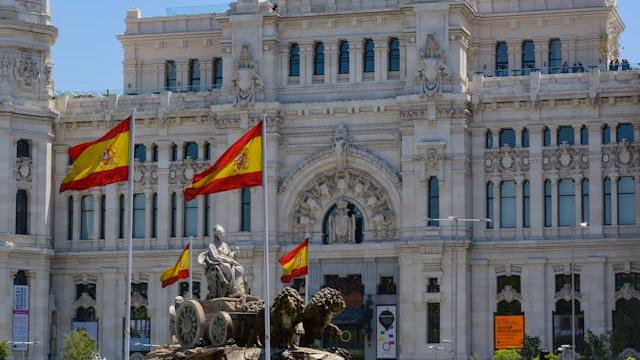Relocating to Spain offers not only the prospect of sun, sea, and a Mediterranean lifestyle, but also the chance for exciting career opportunities and a fresh environment. However, as with any relocation, there are various organisational, legal, and financial aspects to consider.
In this guide, we outline the essential steps for a smooth relocation to Spain and Mallorca, providing tips on how to avoid common pitfalls. Global Tax Saving supports you in making the transition to your new life a success.
Content
- What legal requirements must be considered when immigrating to Spain?
- What else should you consider when relocating to Spain or Mallorca?
- What tax considerations are important?
- Successful emigration to Spain
What legal requirements must be considered when immigrating to Spain?
Residency permit and registration with the police
For EU citizens, entering Spain is relatively straightforward; however, you must register after arrival if your stay exceeds three months or if you intend to work or conduct business in Spain. In this case, you’ll need to register your residency (residencia) with the Spanish civil registry (Empadronamiento) at the local town hall (Ayuntamiento).
Required documents for residency permit
- Valid passport or ID card
- Proof of financial means (e.g., employment contract or bank statement)
- Health insurance proof (Spanish social security or private health insurance)
- Proof of residence (e.g., rental agreement)
Applying for the NIE number
The NIE number (Número de Identificación de Extranjero) is your personal identification number in Spain. It is essential for nearly all administrative and legal matters, purchasing property, and registering with social security.
You can apply for the NIE directly in Spain at the Directorate-General of the Police or in advance at a Spanish consulate or at the Spanish Embassy in your country of residence.
If you prefer to save time or leave the paperwork to an expert, Global Tax Saving offers a comprehensive relocation service to Spain, including assistance with your NIE application. Our team ensures you don’t have to worry about formalities.
Working in Spain and social security registration
Anyone intending to work in Spain must register with the Spanish Social Security (Seguridad Social). This is necessary to access healthcare services and pension benefits. Typically, your employer will handle the registration. However, if you’re self-employed, you must register with Social Security independently.
Registration with the local civil registry
To be officially registered as a resident in Spain, you need to sign up at the local civil registry (Padrón Municipal) of your municipality. This registration is required for all individuals living in Spain on a long-term basis and serves as proof of residence, which is essential for other administrative processes, such as vehicle registration or applying for the TIE (Tarjeta de Identidad de Extranjero).

What else should you consider when relocating to Spain or Mallorca?
Beyond legal requirements, there are other important aspects and potential pitfalls to keep in mind when relocating to Spain. Here are a few key points:
Finding Accommodation
Searching for suitable accommodation in Spain can be challenging, especially in popular cities like Madrid and Barcelona, where rental prices are high and quality properties are in high demand. A good starting point is to browse property websites and social networks. However, an in-person stay is often worthwhile, as many landlords do not list their properties online. Look out for the terms “Se Alquila” (for rent) or “Se Vende” (for sale).
Tips for finding accommodation:
- Negotiate the rent: Haggling is common and accepted in Spain.
- Check the neighbourhood and public transport.
- Ensure the lease is legally sound.
Realistically assessing living costs
Living costs in Spain can vary significantly by region. In major cities like Madrid and Barcelona, expenses are notably higher, whereas smaller towns often offer more affordable living. It’s wise to calculate your monthly expenses in advance, including rent, utilities, groceries, and leisure activities, to avoid any surprises.
Culture, traditions, and social Life
Spanish culture is deeply influenced by sociability, family bonds, and traditional festivals. Expats will quickly notice that social life often centres around bars and restaurants, with Spaniards enjoying time with friends and family. Holidays are especially significant and are celebrated with large festivities.
Important Spanish holidays:
- Semana Santa (Holy Week):
- These Easter celebrations are widespread across Spain, especially in Andalusia, and include religious processions and cultural events.
- San Juan (24 June):
- A summer festival celebrated in many coastal areas with bonfires and night-time beach gatherings.
- La Tomatina (last Wednesday of August):
- A festival where participants throw tomatoes at each other—a spectacle that draws many visitors to Buñol near Valencia each year.
- Christmas and Epiphany (Three Kings’ Day):
- On 6 January, families celebrate the Epiphany, which is more important for children than Christmas Day.
The Spanish people are open and friendly towards foreigners. In popular expat areas, there are often international communities that help newcomers settle in and make connections. Spaniards are known for their warm, welcoming mentality but also for their relaxed approach to bureaucracy and punctuality—patience is essential.

Language Skills and Integration
Although many Spaniards speak English, Spanish is preferred as the everyday language. A basic understanding of Spanish is helpful for navigating daily life and dealing with administrative tasks. Especially outside tourist areas, knowledge of Spanish makes a significant difference. In some regions, like Catalonia (Barcelona), Valencia, and the Basque Country, local languages are also spoken alongside Spanish.
Many cities offer language courses specifically for newcomers. Spaniards appreciate when foreigners make an effort to learn Spanish. Familiarising oneself with the language and regional nuances is an excellent way to integrate more quickly and gain a deeper understanding of Spain’s cultural richness.
Healthcare and health insurance
Healthcare in Spain is well-regarded and is generally accessible to EU citizens. If you are employed in Spain, you automatically contribute to the national health insurance (Seguridad Social), giving you access to the public healthcare system.
If you are self-employed or not in regular employment, you must opt in voluntarily to the Seguridad Social. Global Tax Saving can assist in finding the optimal insurance structure for your situation.
Climate and quality of life in different regions
The climate in Spain varies significantly across regions and affects the quality of life. The Costa del Sol and the Canary Islands enjoy mild weather year-round, ideal for those wanting to escape the cold in Germany. Barcelona and Valencia offer a Mediterranean climate with hot summers and mild winters, making them suitable for year-round living.
A favourite among many expats is Mallorca. Alongside the mild climate, relocating to Mallorca allows you to enjoy the island’s beauty throughout the year.
In Madrid, you’ll experience a continental climate with cold winters and hot summers. In Andalusia, summer temperatures can be extremely high. Climate differences influence daily life and also impact energy and utility costs, such as the need for air conditioning or heating.
What are the disadvantages of living in Spain?
Alongside numerous advantages, there are also a few drawbacks to living in Spain. For example, bureaucratic processes can be more time-consuming, and the healthcare system may not always offer the same level of coverage as in your former country of residence. Another potential downside is the intense heat in certain regions during the summer months.

What tax considerations are important?
A particularly important part of your emigration concerns the Spanish tax system. Spain levies income tax on the worldwide income of all individuals who are considered tax residents. The Beckham Law can provide a worthwhile exception in certain cases.
For entrepreneurs and freelancers moving to Spain or Mallorca, the tax situation can be more complex. Regulations regarding business tax, VAT, and social security contributions are not always straightforward, and language barriers can further complicate matters.
Global Tax Saving provides comprehensive advice on tax obligations and helps you optimise your tax burden as efficiently as possible.
Tax residency
In Spain, a person is considered a tax resident if they spend more than 183 days per year in the country or if their economic centre is based in Spain.
Types of Taxation in Spain:
- Income Tax (Impuesto sobre la Renta de las Personas Físicas, IRPF): Income tax is progressive and varies based on income level.
- Capital Gains Tax: This tax applies to income from capital investments, such as dividends or interest earnings.
- Wealth Tax: Wealth tax applies to affluent individuals and is payable annually. For more details on the wealth tax, see here.
Double taxation agreement
Spain and most other European countries, like the UK or the Netherlands, have a double taxation agreement to ensure you are not taxed twice. If you earn income in both countries, the income is either taxed in one of the two countries, or the double taxation agreement prevents dual taxation.
Successful relocating to Spain with support from Global Tax Saving
A fresh start in Spain is exciting and opens up a life full of new possibilities. The disadvantages of living in Spain are minimal, yet relocating to Spain or Mallorca does come with bureaucratic and organisational hurdles. From applying for residency and the NIE number to finding accommodation and adjusting to the tax system, each detail needs careful planning.
To avoid unnecessary costs and delays, it’s wise to begin administrative tasks early and thoroughly understand the requirements. The easiest path to Spain, however, remains through an external service provider.
Global Tax Saving is your reliable partner at every step of your relocation. From obtaining the NIE number and providing tax advice to handling registration with Spanish authorities, our service ensures that you experience minimal bureaucracy and can relax with anticipation for your new life in Spain.
Contact us for a seamless new beginning.



